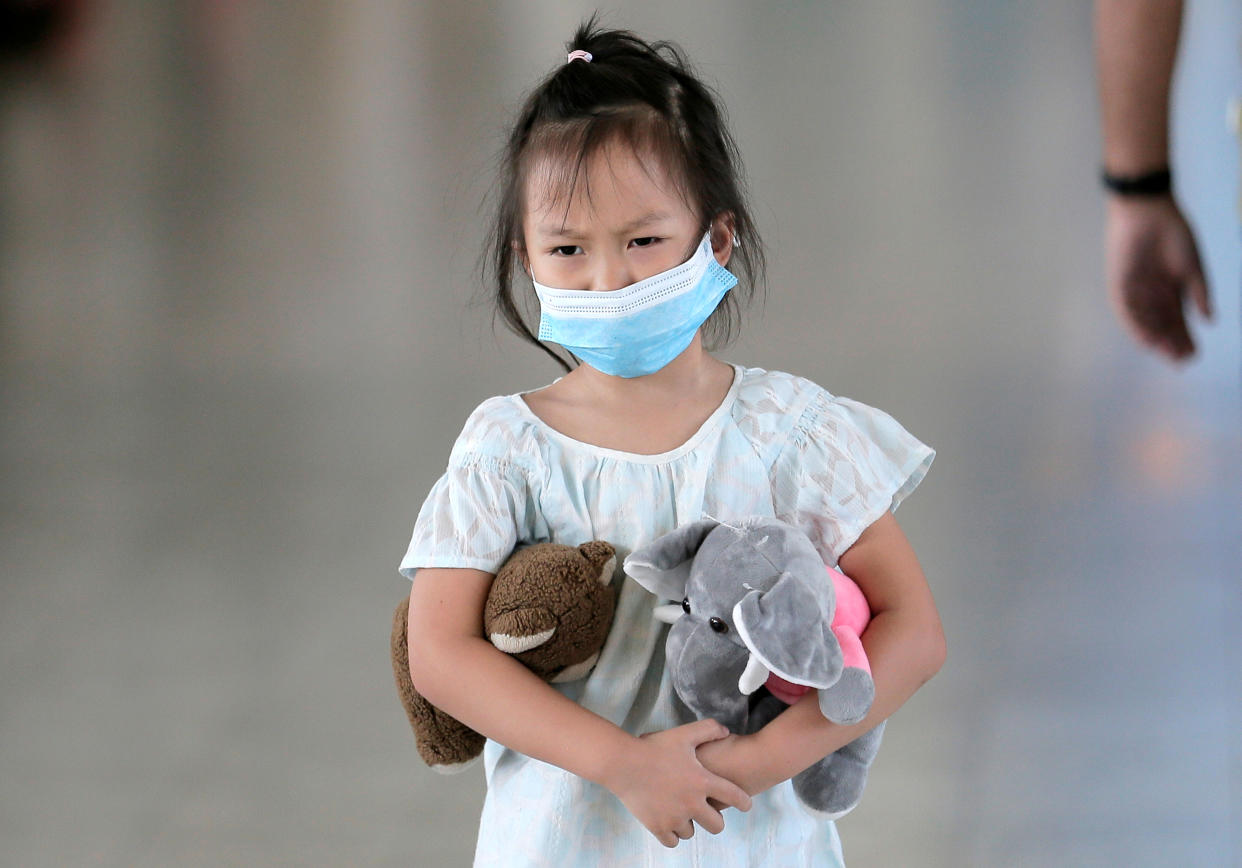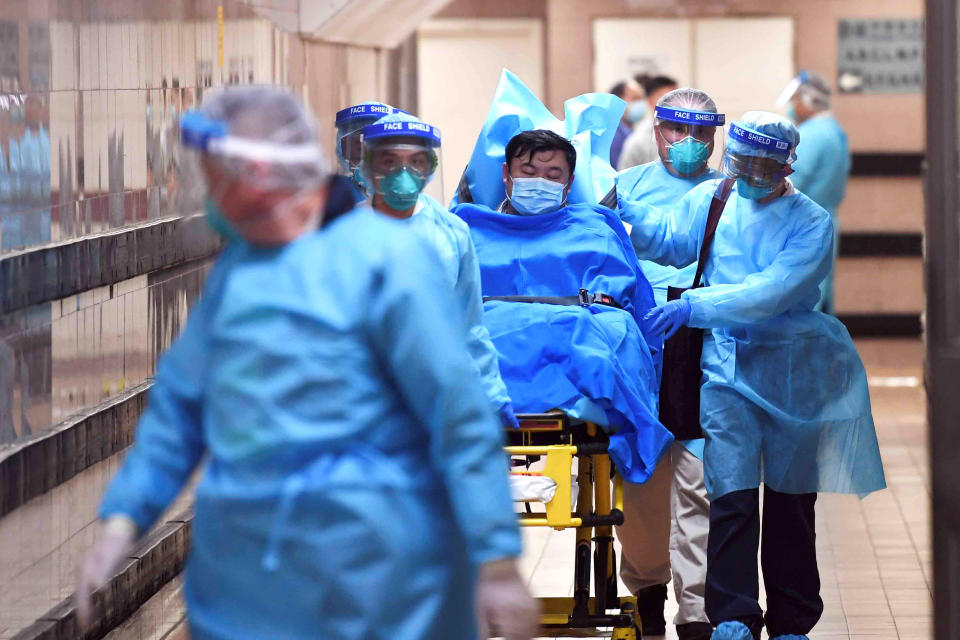'Quarantining' the city at the centre of China's coronavirus outbreak may leave locals feeling 'angry, anxious and trapped'

China’s deadly coronavirus outbreak is making headlines all over the world.
The death toll climbed to 26 on Friday, with 830 confirmed cases.
With the previously unknown strain spreading from its epicentre of Wuhan, the capital of Hubei province, to major cities like Shanghai and even the US, the area has been placed under “quarantine”.
While this could help stem the spread of infection and combat the deadly disease, psychologists warn it may have a marked effect on the residents of Hubei’s mental wellbeing.
READ MORE: Coronavirus outbreak: your questions answered
Wuhan is effectively on “lockdown”, with all buses, ferries and tubes suspended, the BBC reported.
Outbound trains and planes have also been cancelled.
Residents have reportedly been told not to leave the city, with roadblocks in place.
Overall, at least 20 million people across 10 cities in Hubei are thought to be affected by travel restrictions to some extent.
This comes as locals prepare to celebrate Chinese New Year, which usually marks a period of mass migration as billions of journeys take place throughout the country.
Writing in the BMJ Opinion, psychologists from King’s College London warn a “mass quarantine” could raise resident anxiety “substantially”.
They worry placing an entire province on lockdown suggests authorities believe the health scare to be “severe and liable to worsen”.
It may also give the impression officials are acting in the interests of those outside the affected area.
Quarantines also suggest a “loss of control”, while residents feel “trapped”, particularly if families become separated.
A local told the BBC she feels “uneasy”.
The psychologists also warn the “rumour mill must not be underestimated”.
They reference fellow-coronavirus severe acute respiratory syndrome (Sars), which made headlines in the early 2000s after 774 people died across dozens of countries.
An outbreak at Taipei Municipal Hoping Hospital in Taiwan reportedly ended with staff, patients and visitors “suddenly and forcibly” being placed in a two-week quarantine, resulting in “a sense of collective hysteria”.
Genetic analyses reveal the new coronavirus is more similar to Sars than any other pathogen of that class.
Perhaps most worrying of all is how outsiders will view those under quarantine, the psychologists added.
“Stigma can be rampant,” they wrote, referencing incidents of people being “socially shunned” and “properties attacked”.
“Vigilante-imposed isolation” can follow official restrictions, they added.
In the long term, locals may feel “anger” over “official reactions” and the impact on the economy.
How does the new coronavirus spread?
The new strain likely originated at a seafood market in Wuhan.
The market - which was shut at the beginning of the year - also sold a range of processed and live meat including donkeys, poultry, camels, foxes, badgers, hedgehogs and rats.
Exposure to an unknown animal is thought to have triggered the outbreak, with the virus “jumping” between species. Read more about where the new coronavirus came from here.
China's National Health Commission confirmed on Monday the virus can spread from person-to-person.
Coronaviruses are usually transmitted via coughing, sneezing, shaking hands or touching a contaminated object.
READ MORE: Billions of journeys to celebrate Chinese New Year raise fears coronavirus will spread worldwide
The virus enters the body if contaminated hands touch the eyes, nose or mouth.
In rare cases, faecal contamination can be to blame.
The Centers for Disease Control and Prevention (CDC) stresses some viruses are highly contagious and others less so. It is unclear where 2019-nCoV stands.
According to the BBC, each infected person is passing the virus onto between 1.4 and 2.5 people.
Quarantining patients may therefore help stem the infection.
The psychologists called the measure “part of our health arsenal”.
Whether the benefits outweigh the “uncertain psychological costs”, however, is a “judgement that should not be made lightly”, they added.

What measures are in place to control the new coronavirus?
As well as Wuhan’s lockdown, Hubei’s smaller city Ezhou has shut its railway station and suspended all buses.
Officials in Beijing and Shanghai have also asked locals returning from affected areas to stay home for 14 days, according to local media reports.
Major tourists sites like the Forbidden city in Beijing and part of the Great Wall - a global tourist attraction - are closed.
Shanghai has also temporarily shut its Disney Resort, along with five McDonald’s.
READ MORE: What are the symptoms of China's coronavirus?
In Hong Kong, an international carnival and annual football tournament have been cancelled.
President Donald Trump said the situation in the US was “totally under control” and he trusted the information coming from Chinese authorities.
Countries around the world are screening travellers for signs of the infection.
Critics argue, however, it can take up to five days for the tell-tale fever to develop, allowing infected passengers to be missed, Yahoo UK reported.
What is the new coronavirus?
Coronaviruses are a class of viruses that cause everything from the common cold to life-threatening epidemics like Middle East respiratory syndrome (Mers).
Like other coronaviruses, the new strain initially triggers flu-like symptoms, including breathlessness and fever.
In the most severe cases, victims succumb to pneumonia.
This comes about when a respiratory infection causes the alveoli (air sacs) in the lungs to become inflamed and filled with fluid or pus, according to the American Lung Association.
The lungs then struggle to draw in air, resulting in reduced oxygen in the bloodstream.
“Without treatment the end is inevitable,” said the charity Médecins Sans Frontières.
“Deaths occurs because of asphyxiation.”
The CDC warns there is no specific treatment for coronaviruses.
If the infection triggers pneumonia, doctors work to combat the complication.
When a virus is to blame – like 2019-nCoV – pneumonia may be treated via “antiviral medication”, according to the American Lung Association.
Professor Peter Horby from the University of Oxford claims, however, there is “no effective anti-viral”, with treatment being “supportive”.


